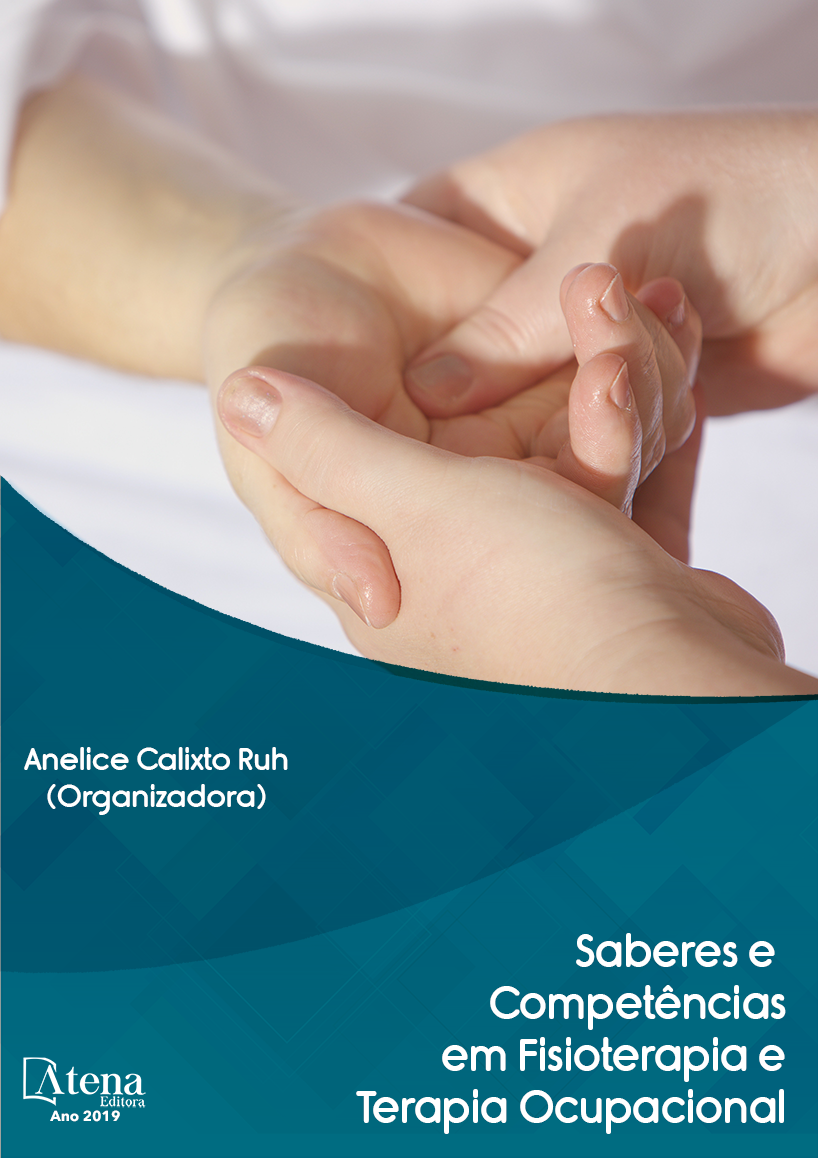
A ORIGEM DA DOR LOMBAR, SUAS COMPLICAÇÕES E MÉTODOS DE TRATAMENTO FISIOTERAPÊUTICO: UMA REVISÃO SISTEMÁTICA DA LITERATURA.
Introdução: A lombalgia está cada
vez mais frequente nos indivíduos, estando
associada, principalmente, a má postura,
sedentarismo, e posturas inadequadas no
ambiente de trabalho, sendo a primordial
causa de afastamento das atividades laborais.
Objetivo: O objetivo deste estudo foi identificar
o principal mecanismo de lesão para dor
lombar, identificar a população atingida com
dor lombar e qual recurso fisioterapêutico tem
mais eficácia no tratamento da lombalgia.
Métodos: Trata-se de uma revisão sistemática
da literatura, realizada por meio de pesquisas
nas bases de dados eletrônicos Medline, Scielo,
Lilacs e PubMed, com as respectivas palavras
chaves: dor lombar, dor crônica, lombalgia e
dor aguda. Os critérios de inclusão são, artigos
com abordagem referente ao tema deste
trabalho, publicados nos anos de 2004 a 2018.
Sendo excluído artigos que não abordam temas
relacionados ao título deste estudo e publicados
anteriormente a 2004. Resultados: Foram
encontrados 12 artigos, destes 4 foram excluídos
após leitura dos resumos, pois eram artigos
que não tinham relevância com o tema deste
estudo, e que não foram publicados entre 2004
a 2018. 8 artigos foram incluídos ao estudo, os
autores observaram que a postura inadequada
por um longo período, principalmente, de forma
sentada e a sobrecarga nas estruturas ósseas
na coluna lombar, são fatores que levam a
degeneração dos discos intervertebrais, e
assim, ao surgimento da lombalgia. Os estudos
mostram que esta anomalia atinge 80,5% das
pessoas, com maior prevalência nas mulheres
entre 22 a 45 anos, com prevalência da síndrome
de 95,2% nas atividades ocupacionais entre
pessoas acima dos 40 anos de idade. Além
do mais, os trabalhos demonstraram aumento
de 30% na ocorrência de lombalgia mecânica
em crianças, adolescentes e adultos jovens e
deram ênfase a conduta fisioterapêutica como
um eficaz tratamento no controle dos sintomas
da lombalgia, trazendo a cinesioterapia com
exercícios de alongamentos e mobilização
articular, além da eletroterapia nas dores agudas
e subagudas, hidroterapia, pilates e outros.
Conclusão: Desta forma, pôde-se concluir
que fatores biomecânicos desempenham papel
importante na gênese da dor lombar, tais fatores são etiológicos para o desenvolvimento
da doença, provocando dor, redução da força, redução da amplitude de movimento,
levando a fadiga e sobrecarga nas articulações. Assim sendo, a conduta fisioterapêutica
utiliza diversos recursos para redução dos sintomas, melhora clínica, e prevenção de
novos aparecimentos no paciente.
A ORIGEM DA DOR LOMBAR, SUAS COMPLICAÇÕES E MÉTODOS DE TRATAMENTO FISIOTERAPÊUTICO: UMA REVISÃO SISTEMÁTICA DA LITERATURA.
-
DOI: 10.22533/at.ed.7021910071
-
Palavras-chave: dor lombar, dor crônica, lombalgia e dor aguda.
-
Keywords: low back pain, chronic pain, low back pain and acute pain
-
Abstract:
Introduction: Low back pain is increasingly frequent in individuals, mainly
associated with poor posture, sedentary lifestyle, and inadequate postures in the work
environment, being the main cause of withdrawal from work activities. Objective: The
objective of this study was to identify the main mechanism of injury for low back pain,
identify the population affected with low back pain and which physiotherapeutic resource
is most effective in the treatment of low back pain. Methods: This is a systematic review
of the literature, carried out through researches in the electronic databases Medline,
Scielo, Lilacs and PubMed, with the respective key words: low back pain, chronic pain,
low back pain and acute pain. The inclusion criteria are articles with an approach related
to the theme of this study, published in the years 2004 to 2018. Articles excluded that do
not address themes related to the title of this study and published prior to 2004. Results:
There were 12 articles of these 4 were excluded after reading the abstracts because they
were articles that had no relevance to the theme of this study and were not published
between 2004 and 2018. 8 articles were included in the study, the authors observed
that the inadequate posture for a long period, mainly ,in a seated form and the overload
in the bony structures in the lumbar spine, are factors that lead to the degeneration of
the intervertebral discs, and thus to the onset of low back pain. Studies show that this
anomaly affects 80.5% of the people, with a higher prevalence in women between 22
and 45 years old, with a prevalence of 95.2% in occupational activities among people
over 40 years of age. In addition, the studies demonstrated a 30% increase in the
occurrence of mechanical low back pain in children, adolescents and young adults, and
emphasized physical therapy as an effective treatment in the control of low back pain
symptoms, bringing kinesiotherapy with stretching exercises and joint mobilization, in
addition to electrotherapy in acute and subacute pain, hydrotherapy, pilates and others.
Conclusion: In this way, it was possible to conclude that biomechanical factors play
an important role in the genesis of low back pain, such factors are etiological for the
development of the disease, causing pain, reduction of strength, reduction of range of
motion, leading to fatigue and overload in the articulations. Thus, the physiotherapeutic
approach utilizes several resources to reduce symptoms, clinical improvement, and
prevention of new appearances in the patient.
-
Número de páginas: 15
- CAMILA CAROLINA BRITO MAIA
- FLÁVIO DOS SANTOS FEITOSA
- GRENDA LUENE DE FARIAS CARDOSO
- DIANA CORRÊA BARRETO


